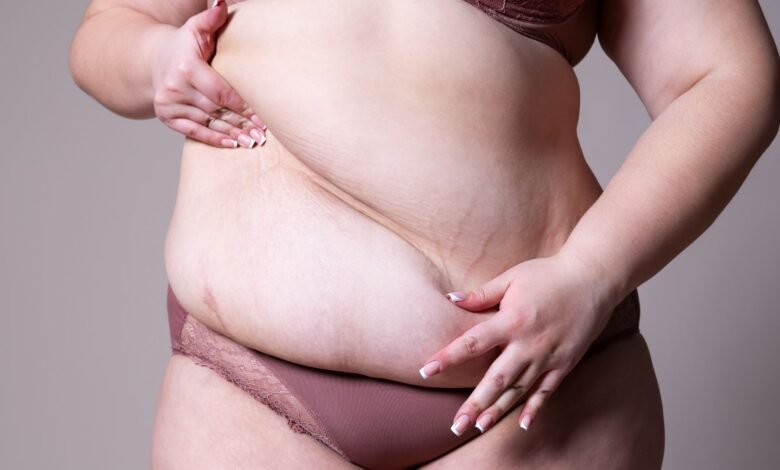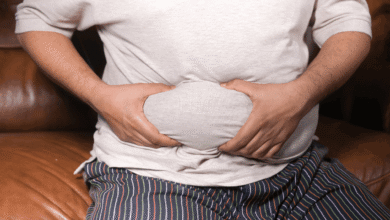Warning Signs After Tummy Tuck

Tummy tucks, or abdominoplasties, are cosmetic surgeries designed to remove excess skin and fat from the abdominal area. They are a popular procedure for individuals who have lost significant weight or have undergone pregnancy, which can leave them with loose, sagging skin. While tummy tucks are generally safe, there are some warning signs after tummy tucks that patients should watch out for after the surgery. This blog post will discuss the warning signs after a tummy tuck and what to do if you experience any of them.
What is a Tummy Tuck?
Before we delve into the warning signs after a tummy tuck, let’s first understand the procedure. A tummy tuck is a surgical procedure that removes excess fat and skin from the abdominal area. The surgeon may also tighten the abdominal muscles to create a flatter and more toned appearance. The procedure is typically performed under general anesthesia; patients must stay in the hospital for a day or two after the surgery.
Warning Signs after Tummy Tuck
It’s essential to monitor your body after undergoing a tummy tuck. Contact your surgeon immediately if you experience any of the following warning signs.
01: Excessive Bleeding
Some bleeding after the surgery is normal, but excessive bleeding is not. If you notice that your surgical dressings are soaked with blood or if you’re bleeding through your clothes, you should contact your surgeon immediately.
02: Swelling
Swelling is normal after any surgery, including tummy tucks. However, if you notice that the swelling is increasing or you are experiencing significant pain or discomfort, it’s important to contact your surgeon because it could be a symptom of torn internal stitches after tummy tuck.06 Symptoms of Torn Internal Stitches After Tummy Tuck?
03: Infection
Infections are rare after a tummy tuck, but they can occur. You should contact your surgeon immediately if you notice any redness, warmth, or discharge from the incision site.
04: Fever
A low-grade fever is common after surgery. However, contact your surgeon immediately if your temperature exceeds 101 degrees Fahrenheit.
05: Persistent Pain
Pain and discomfort are normal after a tummy tuck but should be manageable with pain medication. You should contact your surgeon if you’re experiencing persistent pain not relieved by medication.
06: Numbness or Tingling
Numbness and tingling are common after a tummy tuck due to surgical incisions. However, if you’re experiencing numbness or tingling that’s increasing, or if it’s accompanied by weakness or loss of sensation, you should contact your surgeon.
07: Shortness of Breath
Shortness of breath is a severe warning sign after a tummy tuck. It can signify a blood clot in the lungs or other serious complications. If you’re experiencing shortness of breath, seek medical attention immediately.
08: Constipation
Constipation is common after surgery, including tummy tucks, due to the use of pain medication. However, you should contact your surgeon if you’re experiencing severe constipation not relieved by medication or dietary changes.
What to Do If You Experience Warning Signs After Tummy Tuck

If you experience any warning signs after a tummy tuck, it’s important to contact your surgeon immediately. Your surgeon will be able to evaluate your symptoms and provide you with the necessary treatment.
In some cases, your surgeon may want to see you in person. In other cases, they may advise you to go to the emergency room. Following your surgeon’s instructions and seeking medical attention immediately is important.
Preventing Complications after Tummy Tuck
While complications after a tummy tuck are rare, there are some steps you can take to reduce your risk of experiencing them. Here are a few tips:
01: Follow Post-Operative Instructions
Following your surgeon’s post-operative instructions is crucial for a successful recovery. Your surgeon will provide detailed instructions on caring for your incision site, managing your pain, and what activities to avoid. It’s important to follow these instructions carefully to reduce your risk of complications.
02: Avoid Strenuous Activities
Strenuous activities, such as heavy lifting or vigorous exercise, should be avoided for several weeks after a tummy tuck. These activities can increase your risk of bleeding, swelling, and other complications. Your surgeon will provide guidelines on when it’s safe to resume your normal activities.
03: Stay Hydrated
Drinking plenty of water and staying hydrated are essential for a successful recovery after a tummy tuck. Adequate hydration can help reduce your risk of constipation and improve your body’s healing processes.
04: Quit Smoking
If you’re a smoker, quitting smoking before and after your tummy tuck is important. Smoking can delay healing, increase your risk of infection, and impair your body’s ability to recover.
05: Maintain a Healthy Lifestyle
Maintaining a healthy lifestyle, including a balanced diet and regular exercise, can help reduce your risk of complications after a tummy tuck. A healthy lifestyle can also help you maintain your results over time.
Conclusion
A tummy tuck can be a life-changing procedure for individuals who have lost significant weight or undergone pregnancy. While the procedure is generally safe, monitoring your body for warning signs after the surgery is essential. Excessive bleeding, swelling, infection, fever, persistent pain, numbness or tingling, shortness of breath, and constipation are all warning signs that should be taken seriously. If you experience any of these symptoms, it’s important to contact your surgeon immediately.
Following your surgeon’s post-operative instructions, avoiding strenuous activities, staying hydrated, quitting smoking, and maintaining a healthy lifestyle can help reduce your risk of complications after a tummy tuck. By taking these steps and monitoring your body for warning signs, you can recover successfully and enjoy your new, toned abdominal area for years.
FAQs
Swelling and bruising are normal after a tummy tuck and can last for several weeks. However, if you experience excessive swelling or bruising that doesn’t improve after a few weeks, it’s important to contact your surgeon.
If you suspect an infection after your tummy tuck, contact your surgeon immediately. They will likely prescribe antibiotics to treat the infection and prevent it from spreading.
Your surgeon will provide you with guidelines on when it’s safe to resume normal activities. Strenuous activities, such as heavy lifting or vigorous exercise, should be avoided for several weeks after the procedure.
The recovery time can vary depending on the individual and the extent of the surgery. Most people can return to work within two to four weeks, but it can take up to six months for the full recovery.
Following your surgeon’s post-operative instructions, avoiding strenuous activities, staying hydrated, quitting smoking, and maintaining a healthy lifestyle can all help reduce your risk of complications after a tummy tuck.
The length of bed rest after a tummy tuck can vary depending on the individual and the extent of the surgery. In general, patients are advised to rest for the first week after surgery and avoid any strenuous activities, such as lifting heavy objects or exercising.
It’s important to remember that recovery from a tummy tuck takes time and there is no magic formula for a quick recovery. However, there are some steps you can take to help speed up the recovery process and minimize your discomfort during the healing period. Here are some tips for a smoother recovery after a tummy tuck:
1. Follow your surgeon’s post-operative instructions closely
2. Rest and avoid strenuous activities
3. Wear compression garments
4. Eat a healthy diet
5. Stay hydrated
6. Avoid smoking











